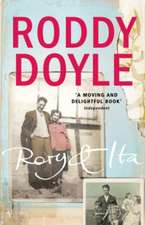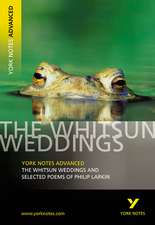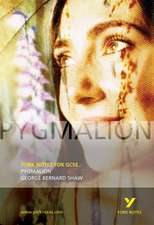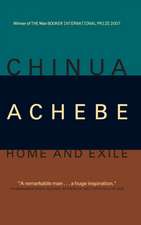Words That Matter: Linguistic Perception in Renaissance English
Autor Judith Andersonen Limba Engleză Hardback – 31 oct 1996
The grammar and rhetoric of Tudor and Stuart England prioritized words and word-like figures rather than sentences, a prioritizing that had significant consequences for linguistic representation. Among these was a heightened awareness of the equivocal “thingness” of language, whether verbal units like proverbs, inscriptions, and biblical quotations or individuated words such as lexical entries, Latin tags, and verbal icons. The author shows how the new or newly important technologies of printing and lexicography contributed substantially to this awareness.
As symptom and cause these technologies participated in a growing cultural emphasis on externalized expression and on the material world. Both perceptually and materially they engaged the contemporary epistemological shift from essence to meaning and from referential object to word.
As symptom and cause these technologies participated in a growing cultural emphasis on externalized expression and on the material world. Both perceptually and materially they engaged the contemporary epistemological shift from essence to meaning and from referential object to word.
Preț: 507.92 lei
Preț vechi: 627.06 lei
-19% Nou
Puncte Express: 762
Preț estimativ în valută:
97.20€ • 101.11$ • 80.25£
97.20€ • 101.11$ • 80.25£
Carte tipărită la comandă
Livrare economică 14-28 aprilie
Preluare comenzi: 021 569.72.76
Specificații
ISBN-13: 9780804726313
ISBN-10: 0804726310
Pagini: 352
Dimensiuni: 152 x 229 x 28 mm
Greutate: 0.61 kg
Ediția:1
Editura: Stanford University Press
Colecția Stanford University Press
ISBN-10: 0804726310
Pagini: 352
Dimensiuni: 152 x 229 x 28 mm
Greutate: 0.61 kg
Ediția:1
Editura: Stanford University Press
Colecția Stanford University Press
Recenzii
“An extraordinary achievement that should have an enduring impact on future historical, literary, cultural, and technological studies of the early modern period and the English Renaissance in particular.”—Harry Berger, Jr., University of California, Santa Cruz
Notă biografică
Judith H. Anderson is Professor of English at Indiana University. She is the author of Biographical Truth: The Representation of Historical Persons in Tudor-Stuart England and The Growth of a Personal Voice: "Piers Plowman" and "The Faerie Queene."
Textul de pe ultima copertă
“An extraordinary achievement that should have an enduring impact on future historical, literary, cultural, and technological studies of the early modern period and the English Renaissance in particular.”—Harry Berger, Jr., University of California, Santa Cruz
Descriere
The grammar and rhetoric of Tudor and Stuart England prioritized words and word-like figures rather than sentences, a prioritizing that had significant consequences for linguistic representation. Examining a wide range of historical sources—treatises, grammars, poems, plays, rhetorics, logics, dictionaries, and sermons—the author investigates how words matter as currency or memento, graphic symbol or template, icon or topos.














